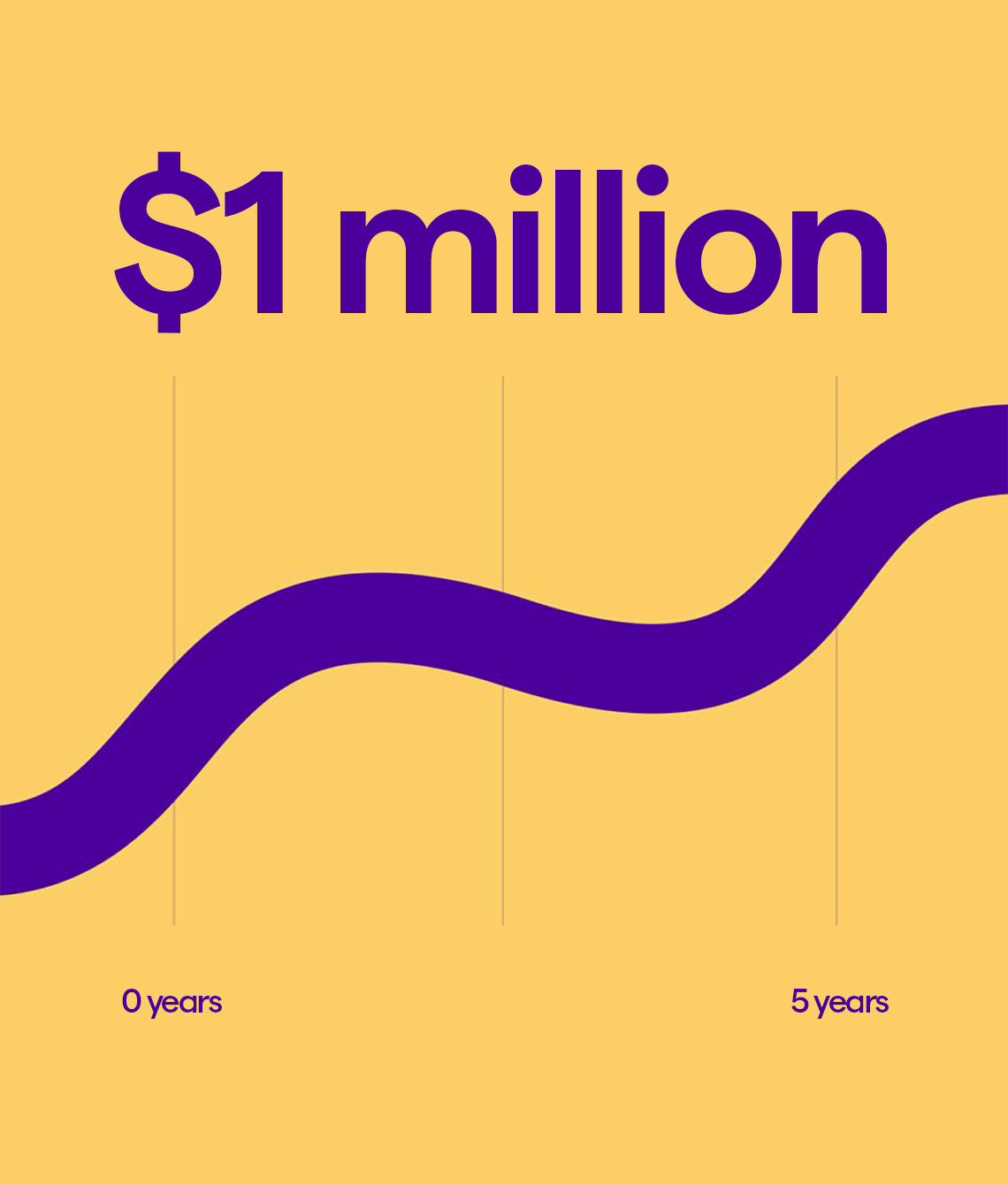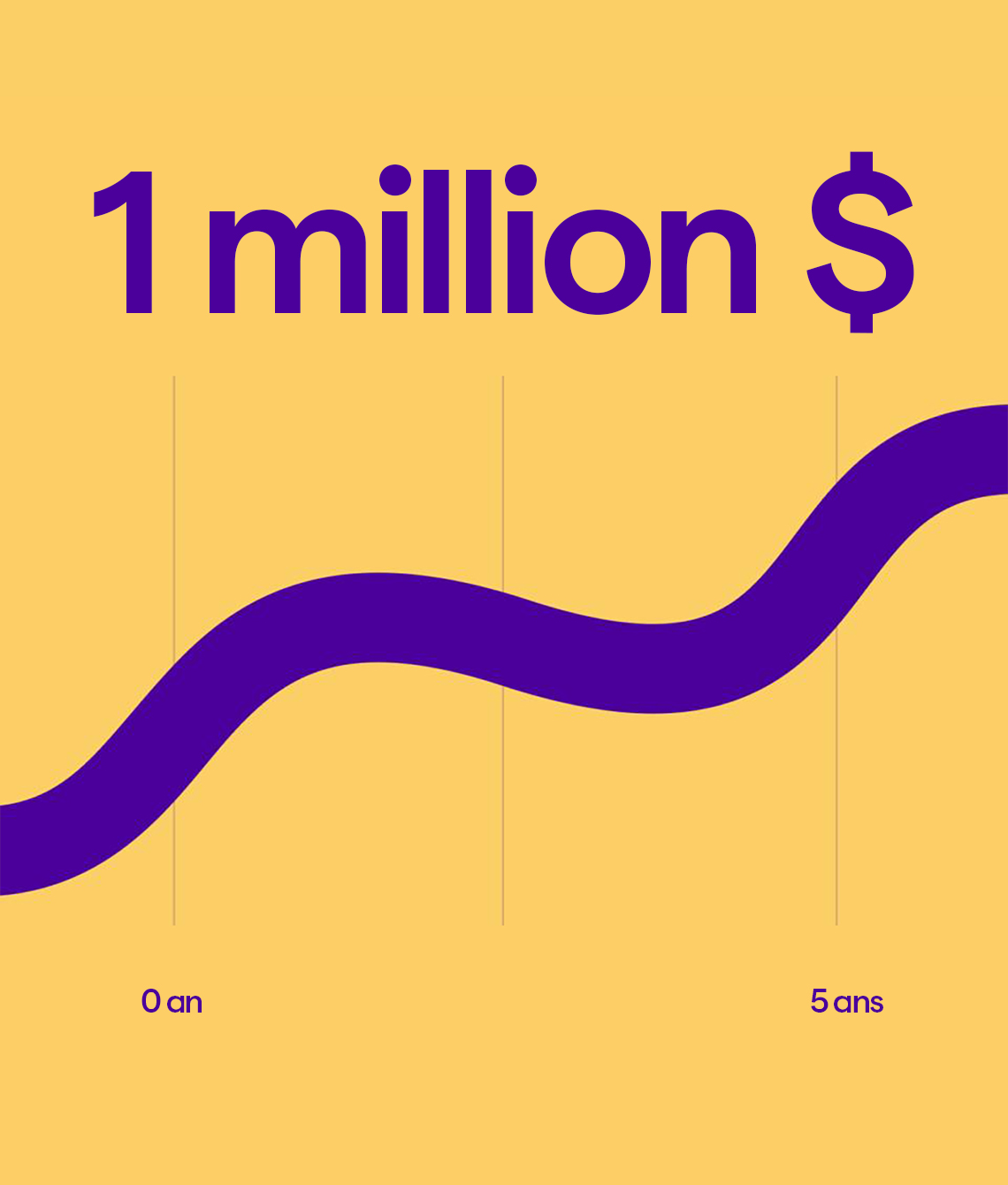1
00:00:00,009 --> 00:00:04,975
In a post-pandemic context, there have
been important changes to work organization.
2
00:00:04,975 --> 00:00:09,370
What we need to know is how those changes
influenced psychology health at work
3
00:00:09,370 --> 00:00:13,231
and what can we do in order to help
organizations to deal with that.
4
00:00:22,639 --> 00:00:23,282
- For Beneva,
5
00:00:23,282 --> 00:00:27,412
it's natural that we want to take care
of our customers but also of the community.
6
00:00:27,412 --> 00:00:30,430
Beneva decided to invest
one million dollars over five years
7
00:00:30,430 --> 00:00:32,777
in this brand new research chair.
8
00:00:32,777 --> 00:00:35,000
It would allow us, as well, to develop tools
9
00:00:35,000 --> 00:00:38,744
that would be useful
for our group insurance customers
10
00:00:38,744 --> 00:00:44,408
and be able to provide
more psychological support to the community
11
00:00:44,408 --> 00:00:45,614
and our clients as well.
12
00:00:50,926 --> 00:00:52,029
- Before Covid,
13
00:00:52,029 --> 00:00:54,397
everybody was more
in the workplace.
14
00:00:54,397 --> 00:00:56,291
But I believe with the pandemic,
15
00:00:56,291 --> 00:01:00,355
there has been a change where people
sometimes have developed isolation,
16
00:01:00,355 --> 00:01:03,080
they feel that it was
a different way of working.
17
00:01:03,080 --> 00:01:05,608
- When it comes to well-being
of the employees,
18
00:01:05,608 --> 00:01:08,024
remote work poses
a bit of an extra challenge.
19
00:01:08,024 --> 00:01:10,691
You can't see five days a week
your employees anymore.
20
00:01:10,691 --> 00:01:11,613
You see them on cameras.
21
00:01:11,613 --> 00:01:14,216
There are somedays that
you don' t even speak to them at all.
22
00:01:14,216 --> 00:01:18,670
And what happens is that you can lose
touch of their typical behaviors.
23
00:01:18,670 --> 00:01:21,283
So observing if something
can actually be wrong.
24
00:01:21,283 --> 00:01:23,880
And it makes it more difficult
when you don't actually get to see them
25
00:01:23,880 --> 00:01:25,576
and speak to them on a daily basis.
26
00:01:25,576 --> 00:01:27,747
- About half of SME employees,
27
00:01:27,747 --> 00:01:31,960
reported feeling either psychological health
difficulties or addiction.
28
00:01:31,960 --> 00:01:35,602
One in five reported anxiety level
at a clinical level
29
00:01:35,602 --> 00:01:38,632
and one in five, depression symptoms
at a clinical level.
30
00:01:38,632 --> 00:01:41,848
This is about twice as much as pre-pandemic.
31
00:01:41,848 --> 00:01:46,126
According to our data, younger employees
report higher workloads
32
00:01:46,126 --> 00:01:48,530
which might explain at least in part
33
00:01:48,530 --> 00:01:51,026
the higher depression and anxiety sypmtoms.
34
00:01:51,026 --> 00:01:55,352
- We look at mental health
on an overall perspective
35
00:01:55,352 --> 00:01:57,880
and taking it into consideration
into wellness.
36
00:01:57,880 --> 00:02:00,861
If we take care of the mental health
of our employees,
37
00:02:00,861 --> 00:02:03,293
it contributes in increasing
the productivity.
38
00:02:03,837 --> 00:02:07,608
It contributes in maintaining a healthy
work life balance for them.
39
00:02:07,608 --> 00:02:11,800
- I think XN is very good with creating
healthy balance to work environment
40
00:02:11,800 --> 00:02:13,064
for its employees.
41
00:02:13,064 --> 00:02:15,058
We have a very flexible work schedule.
42
00:02:15,058 --> 00:02:16,733
For example, I have a colleague in Singapour.
43
00:02:17,155 --> 00:02:21,027
If I work on her schedule that one night
and I'm working at 9 p.m,
44
00:02:21,486 --> 00:02:24,626
the next day, I can kinda take an hour
for myseff in the morning,
45
00:02:24,626 --> 00:02:25,746
sleeping a little bit.
46
00:02:25,746 --> 00:02:29,422
So, there is a nice distinction
between work and private life.
47
00:02:29,422 --> 00:02:34,872
- Our stastistical analysis show that
employees who use self-management strategies
48
00:02:34,872 --> 00:02:37,085
maintain better psychological health.
49
00:02:37,085 --> 00:02:40,381
They also have less absenteeism
and less presenteeism,
50
00:02:40,381 --> 00:02:43,057
so being at work even if you have symptoms.
51
00:02:43,057 --> 00:02:44,675
Our results also show though
52
00:02:44,675 --> 00:02:49,376
that having a workplace environment
with less psychosocial risk factors
53
00:02:49,376 --> 00:02:51,229
is also very important.
54
00:02:51,229 --> 00:02:54,787
- There are many psychological risks
in an organization.
55
00:02:54,787 --> 00:02:56,675
We usually look at absenteeism,
56
00:02:56,675 --> 00:02:59,698
we also look at social isolation,
57
00:02:59,698 --> 00:03:06,280
we also ensure that the workload is managed
properly to ensure that there is no burnout.
58
00:03:06,280 --> 00:03:07,939
- To support my employees
mental health,
59
00:03:07,939 --> 00:03:10,972
I make sure that I don't put
too much pressure on them.
60
00:03:10,972 --> 00:03:15,634
I would rather communicate early about
what expectations are for their deadlines,
61
00:03:15,634 --> 00:03:18,461
rather than micro-managing on a daily basis.
62
00:03:18,461 --> 00:03:20,590
- We have created a small social committee.
63
00:03:20,590 --> 00:03:22,339
Some of our employees work remotely,
64
00:03:22,339 --> 00:03:26,962
And it's very important to make sure
that they feel they belong to a community.
65
00:03:26,962 --> 00:03:28,861
- We try to get people
out of their shell a little bit
66
00:03:28,861 --> 00:03:31,843
to bring people together
with different things like…
67
00:03:31,843 --> 00:03:33,838
You know, we are doing
our cooking class soon.
68
00:03:33,838 --> 00:03:37,298
Anything to foster a little bit of
collaboration team spirit
69
00:03:37,298 --> 00:03:39,592
and to get to know the people
you work with better.
70
00:03:39,592 --> 00:03:44,398
- In our study, about one third of employees
report having access to an EAP
71
00:03:44,398 --> 00:03:46,446
or Employee Assistance Program.
72
00:03:46,446 --> 00:03:50,642
However, 50% of employees say
that they don't have access to one.
73
00:03:50,642 --> 00:03:54,568
And 20% aren't sure whether or not
the organization offers an EAP.
74
00:03:55,229 --> 00:03:57,294
- To make sure that my employees are aware
75
00:03:57,294 --> 00:04:00,046
that the Employee Assistance Program
is available,
76
00:04:00,046 --> 00:04:02,642
we try on an annual visit
to do a communication
77
00:04:02,642 --> 00:04:06,935
in the month of January to make sure that
they are aware of the tools and ressources
78
00:04:06,935 --> 00:04:08,300
that are avalaible for them.
79
00:04:11,304 --> 00:04:13,821
- Our recommandations
in terms of step by step
80
00:04:13,821 --> 00:04:17,256
to be able to implement
a psychological health support,
81
00:04:17,256 --> 00:04:21,032
the first step would be to have
an organizational health assessment.
82
00:04:21,032 --> 00:04:23,619
The second step would be
to survey your employees.
83
00:04:23,619 --> 00:04:26,467
And then,
from there you'll be able to put in place
84
00:04:26,467 --> 00:04:30,894
an action plan that's custom to the needs
and the interest of your employees
85
00:04:30,894 --> 00:04:34,264
but also to the numbers
that talk louder than others
86
00:04:34,264 --> 00:04:36,756
and that would be the priorities to adress in
87
00:04:36,756 --> 00:04:38,505
initiatives that you want to put in place.
88
00:04:38,505 --> 00:04:40,478
- At XN, we try as much as possible
89
00:04:40,478 --> 00:04:44,382
to make sure that mental health is part of
the day to day conversation.
90
00:04:44,382 --> 00:04:46,468
We try to go beyond the differences
91
00:04:46,468 --> 00:04:51,076
and make sure that everybody feels that it is
a subject important to the organization.







